Psychophysiological Insomnia: What It Is and What You Need to Know
Insomnia can manifest itself in a variety of ways, with most people reporting difficulty either falling asleep or staying asleep. In serious cases, insomnia sufferers struggle to fall asleep and also wake frequently throughout the night. Left untreated, this type of chronic insomnia can result in serious health complications.
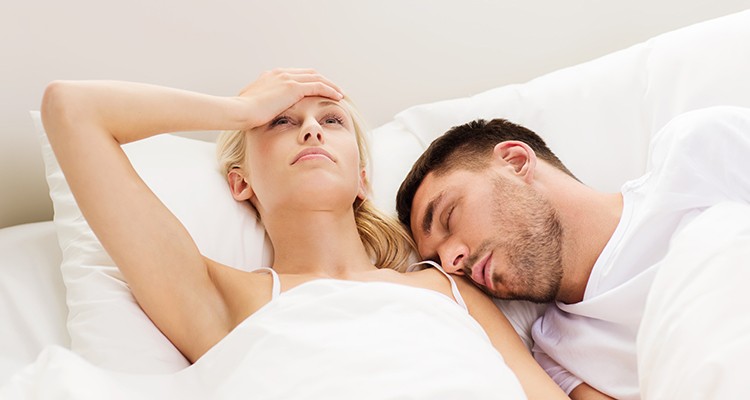
Psychophysiological insomnia is a type of chronic insomnia marked by increased arousal at night that makes it nearly impossible for a person to fall asleep at the desired time. This lack of sleep occurs despite the presence of optimal conditions like a quiet, soothing environment and consistent sleep schedule.
In this article, we’ll explore exactly what psychophysiological insomnia is, its potential causes, symptoms, and treatment options.
Content
What is Psychophysiological Insomnia?
Psychophysiological insomnia is defined in the International Classification of Sleep Disorders third edition (ICSD-3) as “a state of heightened arousal and learned sleep-preventing associations that result in a complaint of insomnia and associated decreased functioning during wakefulness.”
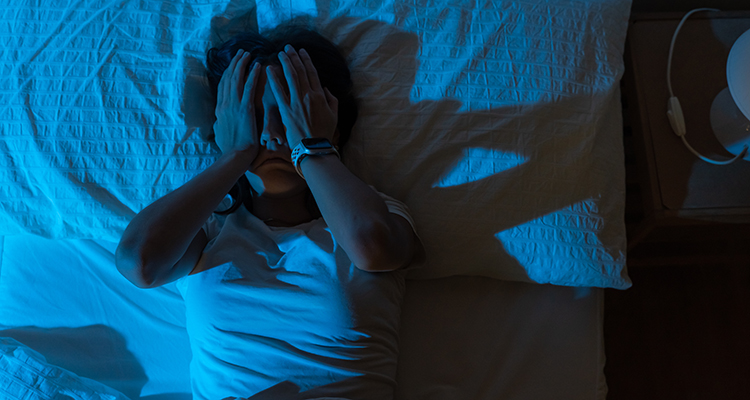
Individuals with this type of insomnia tend to worry over their lack of sleep and how it will impact their ability to function the next day. This worry then keeps them awake at night, creating a vicious cycle of arousal. Over time, it becomes increasingly difficult to initiate and maintain sleep due to excessive worrying.
Psychophysiological insomnia is considered a form of primary insomnia, which means that it’s triggered by an underlying physical or mental condition. Instead, negative thoughts and emotions paired with unhealthy coping mechanisms drive this type of sleep disorder.
This type of insomnia must be present for more than one month for a diagnosis to be made. This type of physiological arousal at night is often associated with certain emotions and behaviors that don’t necessarily meet the criteria for other disorders. The most notable symptom of psychophysiological insomnia is racing thoughts. The more the person tries to achieve sleep, the more persistent these thoughts become, creating a state of heightened arousal. This can also lead to increased anxiety, heart rate, and agitation, making it increasingly difficult to fall asleep.
Another notable feature of this type of insomnia is that it occurs regardless of the person’s sleep environment. That means that even in ideal sleep conditions, you may experience persistent racing thoughts, increased anxiety, and arousal with no known cause or cure. Some studies suggest that people who consider themselves “light sleepers” are at greater risk of developing psychophysiological insomnia.
Symptoms of this type of insomnia can occur as early as childhood. Many young adults also experience hyperarousal before sleep. Psychophysiological insomnia has sleep-preventing associations which may first be learned during an episode of acute or basic insomnia. Unfortunately, the side effects often persist long after the initial external stimuli are removed. Concern over achieving a good night’s sleep may persist for weeks, months, or even years and soon become the person’s primary barrier to sleep.
Side Effects of Psychophysiological Insomnia
After months of dealing with psychophysiological insomnia, you’ll start to notice some significant side effects. The most common ailment is an overall feeling of being unwell. Body aches, fatigue, and brain fog are all reported as adverse side effects of this particular form of insomnia. Left untreated, these feelings can quickly manifest into a depressed mood and lack of both motivation and productivity.

Other common side effects include impaired attention, low energy levels, lack of vigilance, and poor concentration. As chronic fatigue sets in, these symptoms only worsen. Some people with psychophysiological insomnia report being unable to take a daytime nap, despite feeling tired enough to sleep.
Increased feelings of hopelessness and frustration over lack of sleep can cause psychophysiological insomnia sufferers to misuse prescription and OTC sleep aids, become withdrawn or isolated from friends and family, shirk responsibilities, and fall into a deeper state of depression. Other physical side effects include a metabolic rate over 24 h and increased heart rate variability.
Your doctor may observe and document these side effects without realizing the cause is psychophysiological insomnia. Oftentimes, other physical ailments must be ruled out first before making an official diagnosis.
What Causes Psychophysiological Insomnia?
There’s no known cause for psychophysiological insomnia, however, studies do suggest some risk factors and preexisting conditions that may increase a person’s risk for developing this specific sleep disorder.
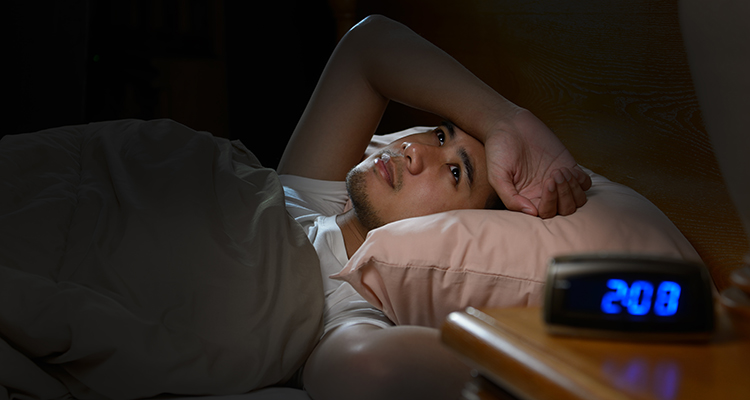
One precursor for psychophysiological insomnia is a predisposition to hypervigilance. Hypervigilance is described as an elevated state of awareness where a person is constantly assessing potential threats. This condition is often a result of past trauma. Research suggests that people who are more prone to internalize psychological conflict also have higher levels of emotional arousal and physiological hyperarousal that could render them unable to fall asleep.
Symptoms and Signs of Psychophysiological Insomnia
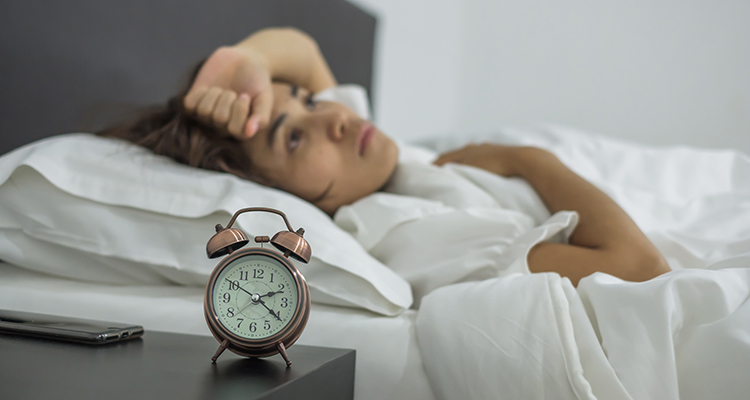
A state of increased arousal at night and persistent racing thoughts are just two of the symptoms associated with psychophysiological insomnia. Check out these other signs that your lack of sleep could be caused by this condition.
- You go to bed feeling tired but find yourself unable to fall asleep. Instead, you feel awake, alert, and even alarmed or paranoid.
- Your psychological state is determined by how poorly you slept
- You often start your days talking about how bad your night was
- You find yourself falling asleep everywhere except for your bed
- You feel tired and fatigued at other times of the day but not at bedtime
- You feel increasingly anxious and worried as nightfalls
- Regardless of how tired you are, you feel instantly aroused when you get into bed
Because psychophysiological insomnia is primarily caused by worrying over not sleeping, which causes you to not sleep, these symptoms often occur only at bedtime. As your bedtime grows near and you prepare to get into bed, you may find yourself feeling increasingly anxious. Many people with this form of insomnia have negative thoughts and ideas about sleep and associate sleep with negative emotions. All of which only worse insomnia symptoms and perpetuate a state of chronic sleep deprivation.
Overcoming Psychophysiological Insomnia
One good thing about primary insomnia is that you can attack the problem right at the root. Unlike secondary insomnia, which is caused by something else, once you identify what’s triggering your insomnia (constant worrying), you can work to make the necessary changes to overcome it.
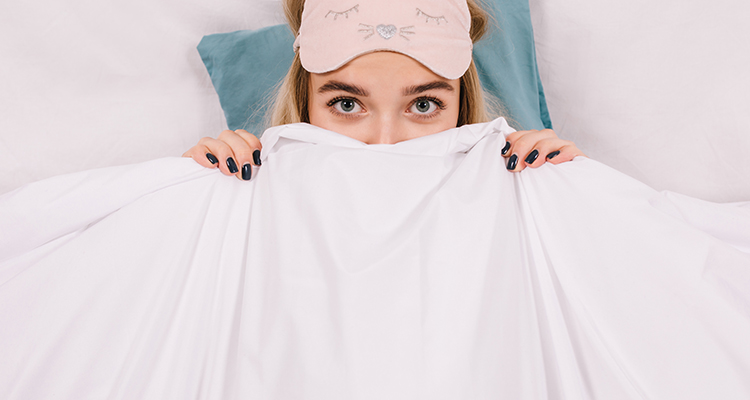
The first step in this process is to learn about and understand psychophysiological insomnia. People with this type of insomnia report feeling a sense of performance anxiety when climbing into bed. Instead of feeling tired, relaxed, and relieved, they feel paranoid, aroused, and anxious. Think of how you might feel on the first day of school, speaking in front of a large group, or going for an interview. Sweaty palms, a racing heart, and shallow breathing are just a few physical symptoms that can occur at night if you have psychophysiological insomnia.
One reason for this is that the worry over not sleeping starts much earlier in the day and persists all afternoon until nightfall. By the time it’s time for sleep, the person has built up a great deal of anxiety. Your brain and body view bedtime as “showtime”, where the pressure to perform causes feelings of nervousness and activates the body’s arousal system. Some people even report viewing their beds as a threat.
One of the best ways to start overcoming this type of insomnia is to take the pressure off. It’s important to identify what’s causing you so much stress and worry over sleep and work to find ways to reduce your anxiety and calm your racing mind.
How to Treat Psychophysiological Insomnia
You know that you have to address the extreme worry you feel over not getting to sleep, but you’re not sure how. The most common and effective way to treat psychophysiological insomnia is through cognitive behavioral therapy (CBT).
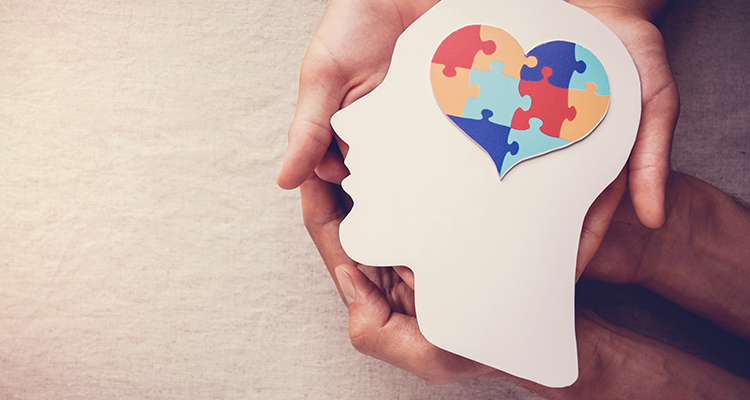
CBT was originally developed to treat depression, but through years of research, this form of therapy has proven quite effective at treating various mood disorders, as well as other conditions including insomnia. CBTi (cognitive behavioral for insomnia) works to help you change your thoughts about sleep while also changing your behaviors. Through a variety of techniques, CBTi can help improve your sleep patterns and reduce the worry and anxiety you associate with sleep. In time, CBTi can reframe how you perceive sleep, reduce the time you spend worrying about sleep, and help break the insomnia cycle.
Here are some of the top CBTi treatment methods that have proven especially helpful for treating psychophysiological insomnia.
Cognitive Restructuring
The cognitive restructuring may be the most effective way to treat this primary form of insomnia. This method teaches you to replace your negative thoughts about sleep with more positive ones. It also helps you shed unrealistic beliefs and myths about sleep and accept more accurate and reasonable information.
This technique is a form of collaborative therapy. You would work closely with a therapist or sleep specialist to identify negative patterns of behavior and then replace them with healthier ones. A therapist can also help you look objectively at certain circumstances and events.
Stimulus Control Therapy
Since most people with psychophysiological insomnia associate the bedroom with high arousal and anxiety, stimulus control therapy can help create a healthy relationship between you and your bed. The ultimate goal is to convince your brain that your bed is meant for sleep and sex only. It’s also intended to be a place of rest, relaxation, and calm.
This can be difficult for people with psychophysiological insomnia to achieve, but with time and patience, it’s possible. Remove any stressors or stimulation from your bedroom. Invest in high-quality sheets, pillows, and a mattress. Reduce noise and light distractions. If you find yourself lying awake for longer than 15 or 20 minutes, get up and leave the room. And don’t return to bed until you feel tired enough to fall asleep.
When you do exit the bedroom, perform a relaxing activity that helps calm your mind. Examples include meditating, reading a book, drinking chamomile tea, or listening to soothing music.
Sleep Restriction Therapy
Sleep restriction therapy is another form of CBTi that may or may not improve psychophysiological insomnia. The ultimate goal is to decrease the inconsistency of sleep while also improving your depth of sleep.
Sleep restriction therapy also works to increase your sleep efficiency, making the most out of your time spent in bed. Sleep efficiency is the amount of time you spend awake in bed versus how much time you spend sleeping. This type of CBTi may help you fall asleep faster and reduce the number of awakenings you experience in the middle of the night.
Sleep specialists will design a new sleep schedule for you that limits how long you’re in bed. By reducing this time, it’s believed that you can learn to fall asleep more quickly. Because falling asleep is the primary issue for individuals with psychophysiological insomnia, this treatment method is usually combined with other forms of CBTi.
FAQs About Psychophysiological Insomnia
Do you still have questions about psychophysiological insomnia? If so, you’re not alone. Here are some more frequently asked questions about this unique sleep disorder.

Is Psychophysiological Insomnia Curable?
Yes! Since psychophysiological insomnia is associated with hyperarousal caused by unhealthy thinking patterns and behaviors, you can cure it by addressing these underlying issues. Time and again, CBTi has proven effective at improving all types of insomnia, including psychophysiology. Keep in mind, though, that improved symptoms don’t mean a perfect night’s sleep. It just means you’ll see an improvement in symptoms and may experience fewer worrisome thoughts surrounding sleep.
Can Insomnia Be Psychological?
Yes, both psychological and physical factors can trigger insomnia, including psychophysiological insomnia, and prevent you from sleeping. Similar to how bright lights or loud noises can keep you up at night, anxiety and racing thoughts are equally as disruptive.
What Physiological Issues Cause Insomnia?
The main physiological causes of insomnia include:
- Anxiety and worry
- Stress
- Depression
- Physical or mental trauma
- Grief
- Inconsistent bedtime schedule
- Poor sleeping habits (using digital screens before bed, drinking caffeine too late in the day, etc.)
- Time changes (jet lag, changing time zones, traveling, daylight savings time
Understand and Address All Types of Insomnia
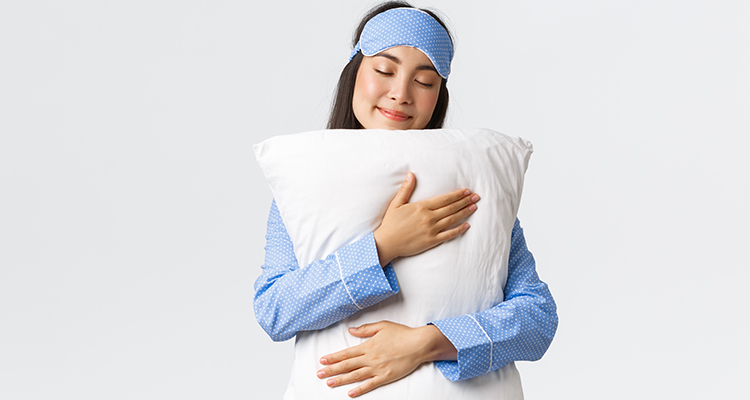
With so many forms of insomnia, causes, and other sleep disorders out there, it can be difficult to determine the root cause of your sleep troubles. But once you do, you have the power to make positive changes. At Somnus Therapy, we can help you identify the underlying cause of your sleep issues, plus what specific sleep disorder you’re dealing with.
Our convenient online therapy treatment program makes it easy to get the help and support you need in the comfort of your own home. Click here to learn more.
















